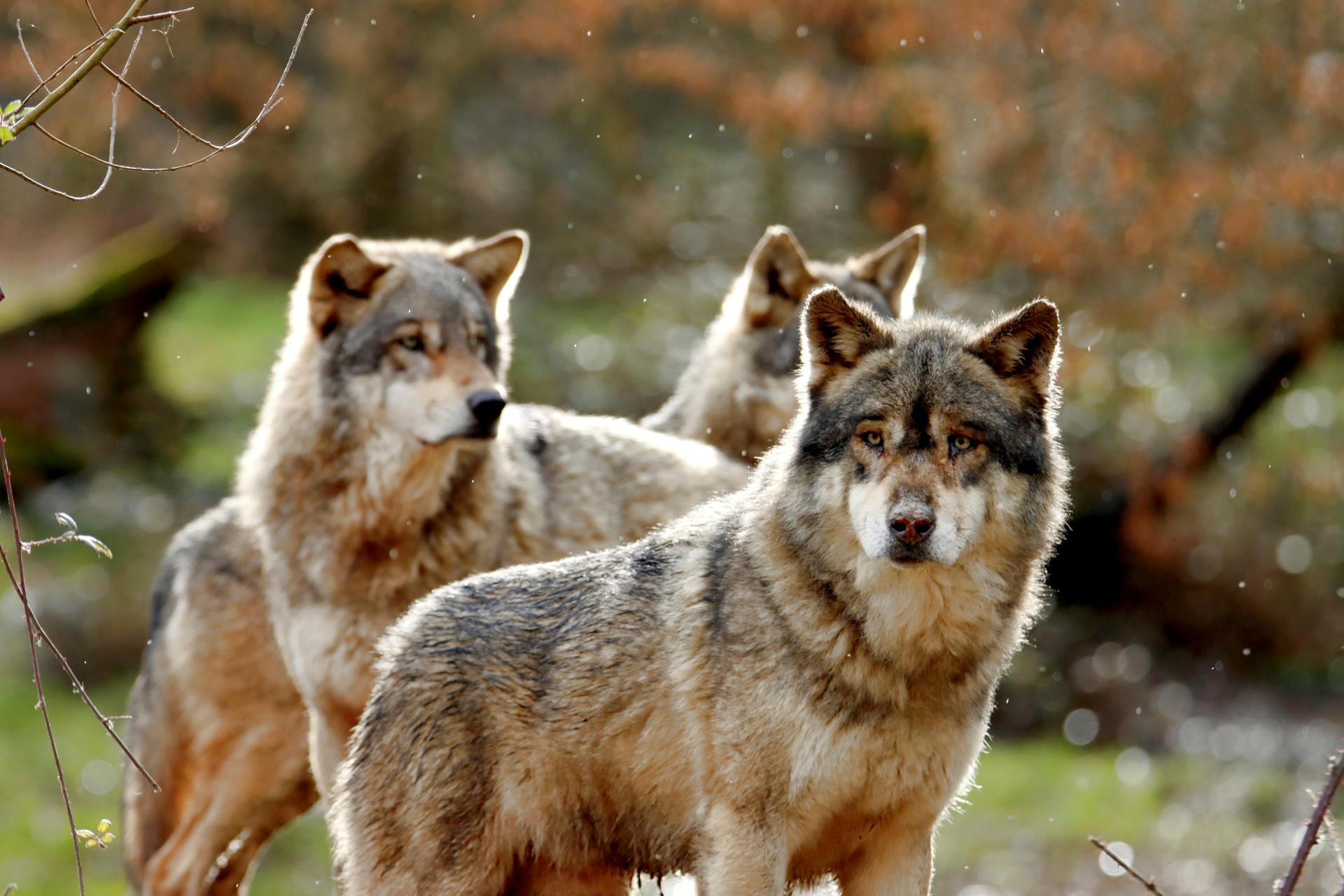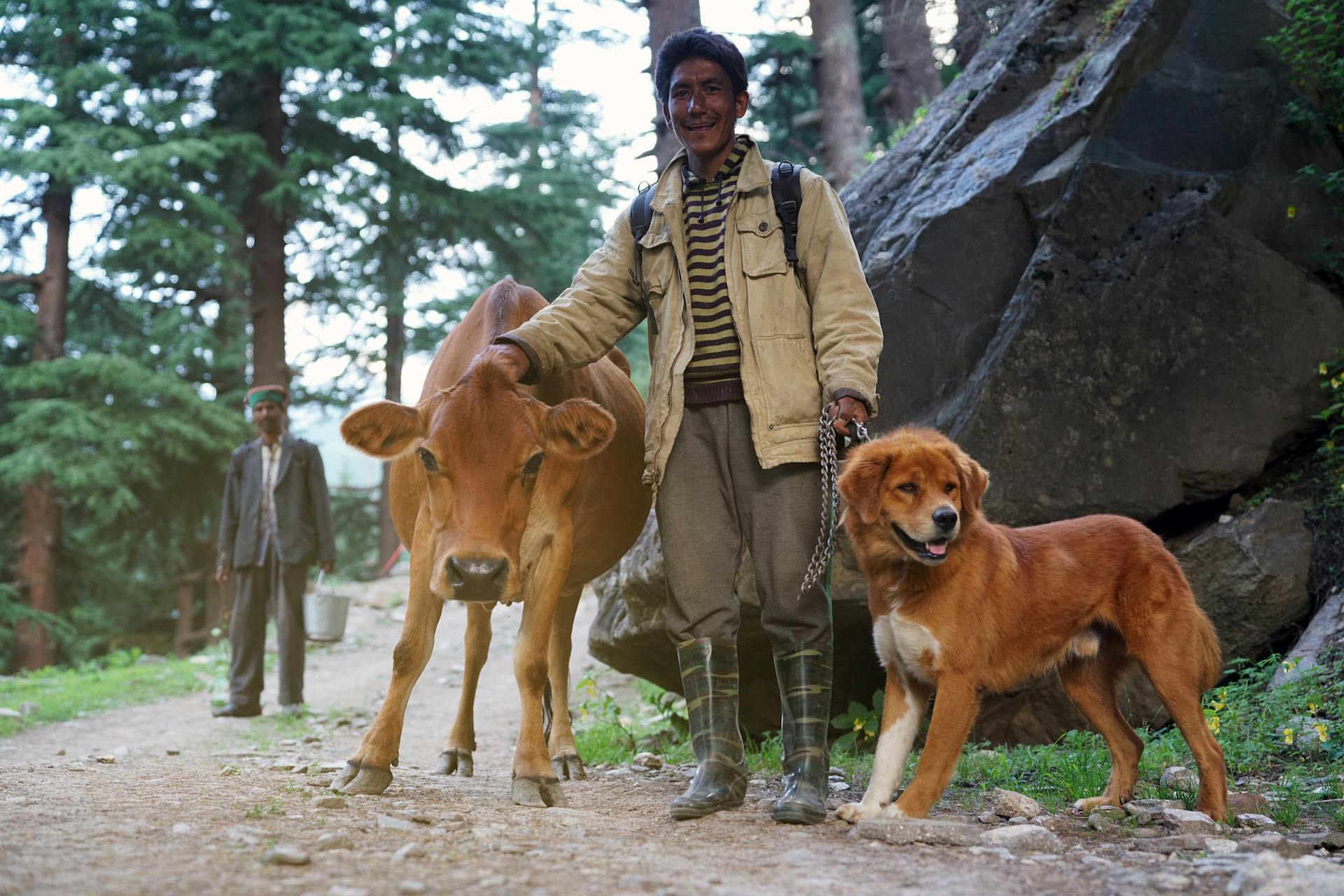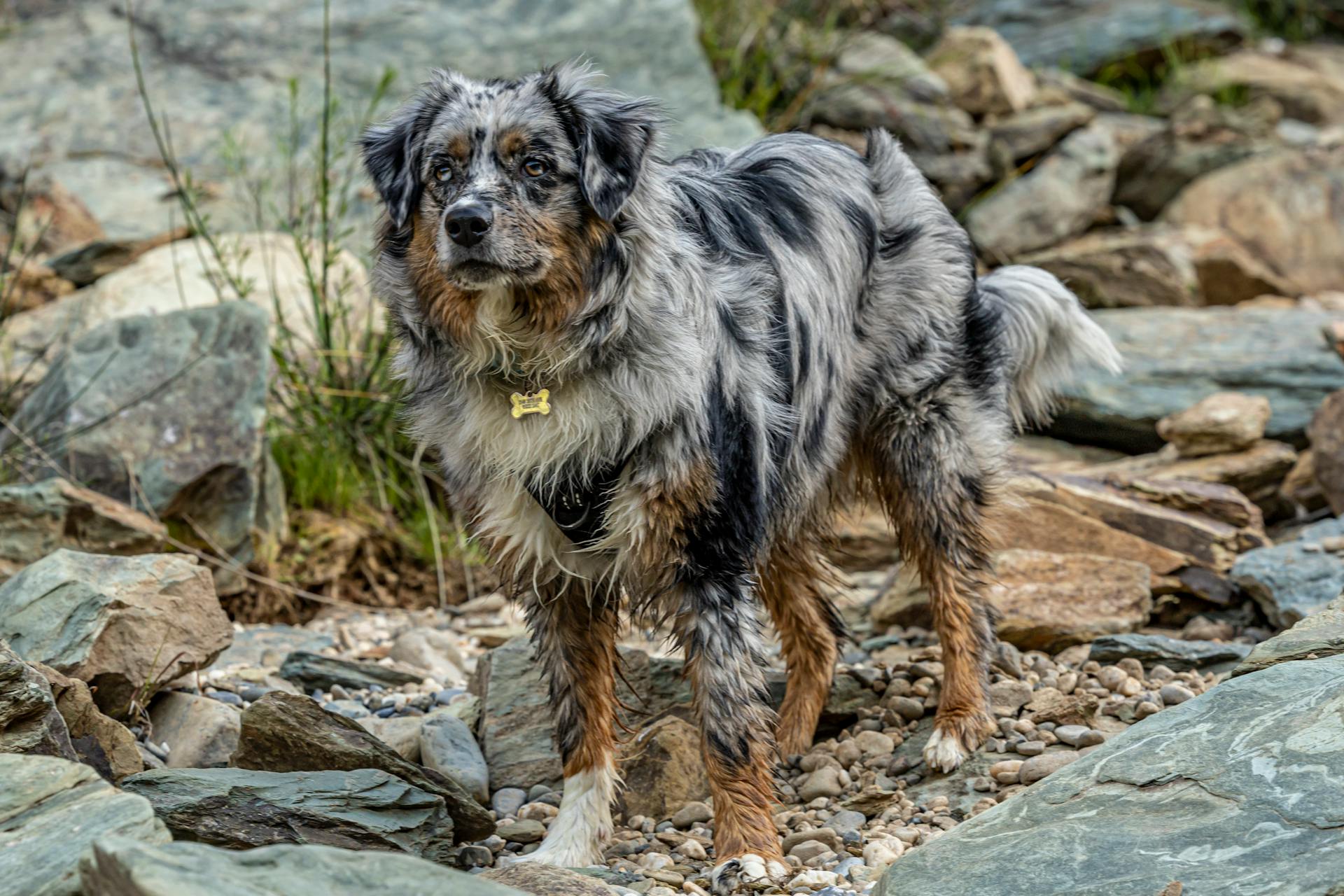
Wolfdogs are known for their independent nature, which can make them challenging to care for. They require a lot of space to roam and exercise.
Their strong prey drive can also be a concern, especially if they're not properly socialized. Wolfdogs may view small pets, such as cats and rabbits, as prey.
With proper training and socialization, wolfdogs can be loyal and loving companions. However, they still require a lot of attention and exercise to stay happy and healthy.
Wolfdogs are generally not suited for apartment living due to their high energy levels and need for space.
What Is a Wolfdog?
A wolfdog is an animal that's part wolf and part dog, sharing a common evolutionary past that makes them physically and behaviorally similar.
Wolfdogs are not a recognized breed, so there's no breed standard for them. Instead, enthusiasts use the term "content" to describe the wolf-to-dog genetic ratio of a specific animal.
Take a look at this: Boxer Breed Behavior
A low-content wolfdog will display more dog traits than wolf traits, both physically and behaviorally. This means they'll likely look and act more like a regular dog.
Wolfdogs are almost exclusively the result of human intervention in dog-wolf interactions, as wolves are territorial and monogamous animals that don't usually react well to dogs being near them or their territory.
Experts say that, in nature, wolfdogs are extremely rare.
For another approach, see: Wolf and Wolfdog
Owning a Wolfdog
Owning a wolfdog is a significant commitment that requires careful consideration and planning.
Wolfdogs are highly energetic and need plenty of exercise, which can be challenging for inexperienced owners. They require at least 2 hours of exercise per day, which can be a substantial time commitment.
Some wolfdogs can be quite destructive if they don't receive enough physical and mental stimulation, so providing adequate exercise and playtime is crucial.
A wolfdog's size and strength can be intimidating, but with proper training and socialization, they can be loving and gentle companions.
Wolfdog Temperament
Wolfdogs can have a strong predatory instinct, making them a danger to small animals and children. They may view children as "bite-size" prey, which can be especially problematic.
Their wolf-like nature also makes them wary of humans, especially high-content wolfdogs. They tend to avoid people, but when they do interact, they can be unpredictable.
Low- and mid-content wolfdogs can be relatively easy to train, but high-content wolfdogs are often more difficult to handle. They require early socialization and careful training to manage their wild instincts.
Wolf-dog hybrids can be powerful, territorial, and aggressive, making them a challenge to own. They need a strong handler who is patient and well-aware of their unique needs.
Their lifespan can be longer than that of a typical large-breed dog, reaching up to 14 years or more. This means that owning a wolfdog is a long-term commitment.
Wolfdogs can be "mouthy" and destructive if left unsupervised, and their agility often makes standard fencing inadequate to contain them. They require regular exercise and mental stimulation to prevent behavioral problems.
Despite their potential for being wonderful pets, wolfdogs are often misunderstood and mismanaged. They're not for first-time dog owners or those who are faint of heart.
Here's an interesting read: Mid Content Wolfdog
Potential Problems
Wolfdogs may display hunting behavior, such as stalking and killing small animals, which can be a concern for homeowners.
Experts have determined that wolves and dogs share more than 99 percent of their DNA, but those few strands make a big difference.
Wolfdogs may be prone to escaping or digging their way out of yards in search of prey, which can be a significant problem for owners.
Their wild instincts may also lead them to defend their territory or family, resulting in aggressive behavior towards strangers or other animals.
Wolfdogs may display a strong prey drive, which can manifest in destructive behavior such as digging, chewing, or destroying household items.
Their independent nature may make them resistant to training, which can make them difficult to manage and socialize.
Sources
- https://www.thewildest.com/dog-lifestyle/do-wolfdogs-make-good-pets
- https://www.wolfpaws.org/wolf-dogs
- https://www.webmd.com/pets/dogs/what-to-know-about-wolfdogs-wolf-dog-hybrids
- https://texaswolfdogproject.org/resources/owning-a-wolfdog
- https://www.sheknows.com/living/articles/1133467/wolf-dog-hybrids/
Featured Images: pexels.com


